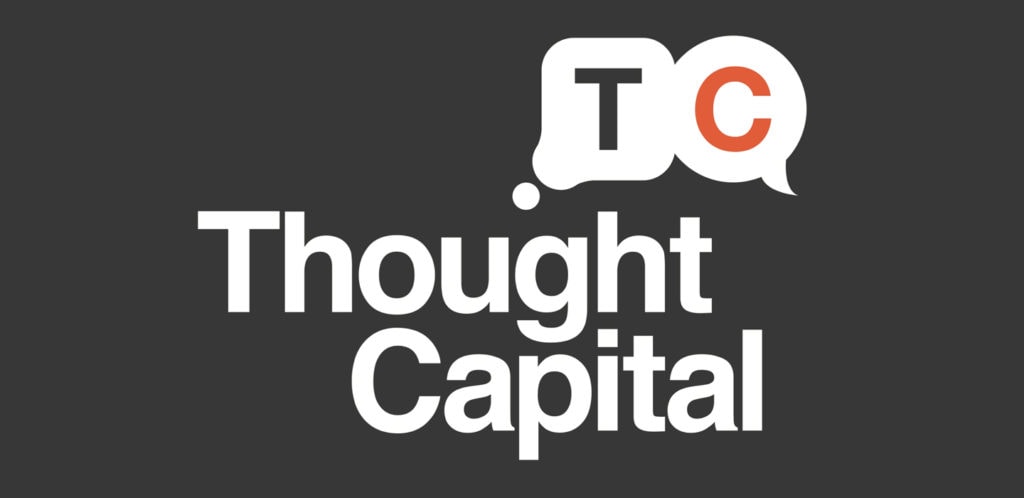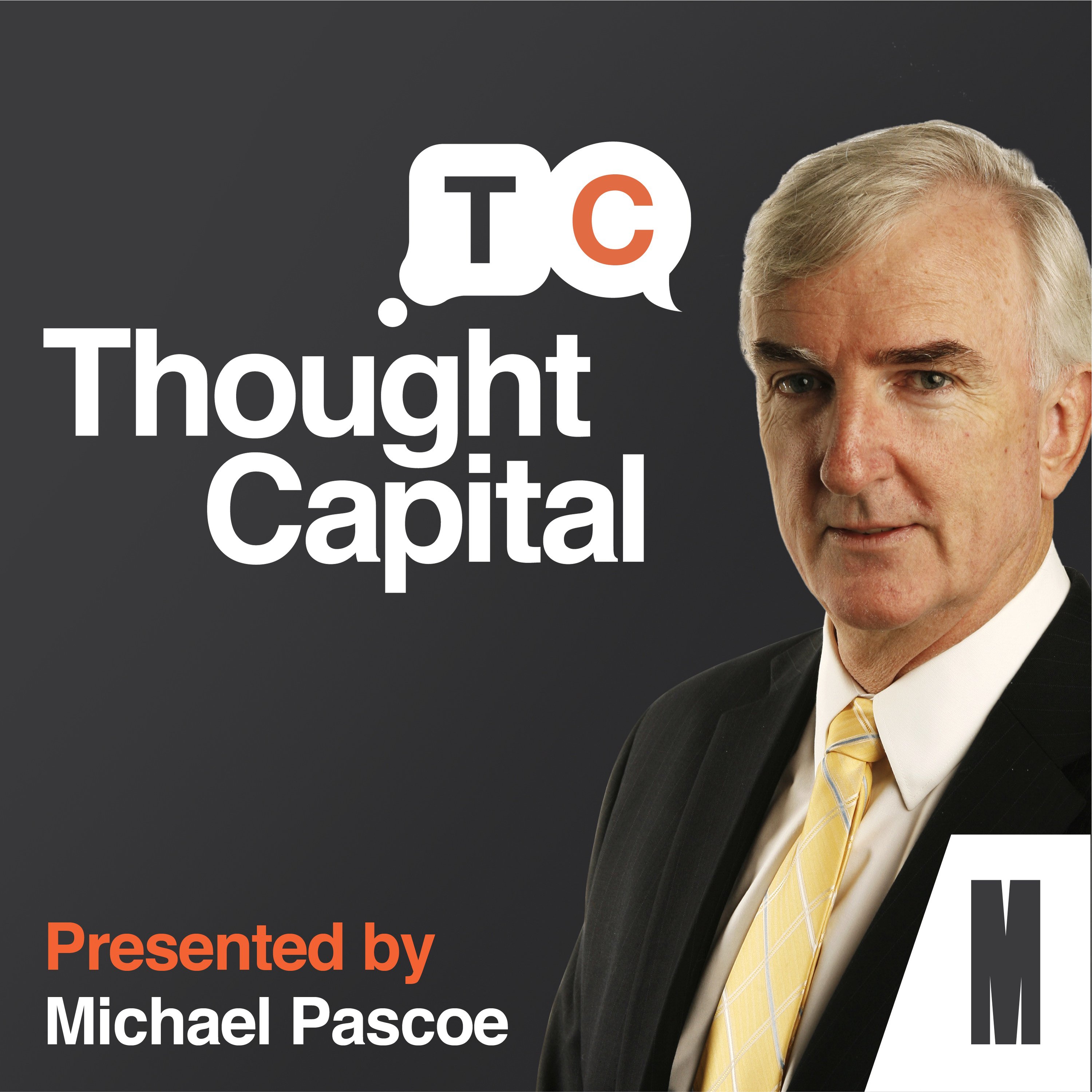Introduction: Hello, I’m Michael Pascoe. Welcome to Thought Capital, the podcast that delves into the wealth of ideas created by the experts at Monash Business School in Melbourne, Australia.
Michael Pascoe: Ten years ago, Jeff Morris blew the whistle on corruption and fraudulent behaviour in the Commonwealth Bank’s Financial Planning operation. Together with three colleagues, he contacted the financial regulator, ASIC, explaining how the CBA was covering up the activities of a rogue financial planner. When ASIC failed to take action, Jeff Morris left his job and went public. It came at a very high price for both him and his family. Many in his situation would not have done the same.
Michael Pascoe: A decade and several other banking scandals later, we finally have a Royal Commission of Inquiry into banking and financial services thanks to the brave testimonies of Jeff and people like him. The inquiry has already severely damaged the reputation of our key financial institutions, yet whistleblowing can be beneficial to companies.
Xinning Xiao: Research evidence actually shows if you blow the whistle, it’s a great opportunity for firms to detect fraud and correct misconduct at early stage. So, I see this as a great opportunity for the company to fix a problem.
Michael Pascoe: In this episode of Thought Capital, we will be talking to lecturer Xinning Xiao from the Department of Accounting about how companies can gain from whistleblowing and better protect the employees who expose misconduct.
Michael Pascoe: Xinning, accounting and whistleblowing. Did you get into whistleblowing because accounting was boring?
Xinning Xiao: Accounting is really interesting, but what I’m looking at is quite less mainstream accounting and that’s where my research interest is.
Michael Pascoe: How did you get steered into … How did you take off after the whistleblowers?
Xinning Xiao: I’m always interested in the behavioural aspects of accounting, and whistleblower is such a topical issue as you can tell from the news headlines. So, I’m really interested in the series of decision made by a whistleblower and what happens after the brave people like Jeff that decide to be a whistleblower, how well they be handled.
Michael Pascoe: Whistleblowers are many companies’ worst nightmare. Example, the Commonwealth Bank. But you say whistleblowers can actually help companies.
Xinning Xiao: They can actually be a great asset because research evidence actually show if you blow the whistle, it’s a great opportunity for firms to detect fraud and correct misconduct at an early stage. So I see this as a great opportunity for the company to fix the problem instead of pushing the whistleblower to go externally.
Michael Pascoe: So the worst thing you can do is not take care of a whistleblower internally.
Xinning Xiao: Exactly.
Michael Pascoe: That pushes them external.
Xinning Xiao: Yep and if you have exposure to external whistleblowing event research evidence showed the company experienced significant cost. Market evaluation is going to drop and the investor will bear the cost.
Michael Pascoe: This isn’t just about covering it up, about keeping it private and paying off a whistleblower, it has to go a step further doesn’t it?
Xinning Xiao: Yes. Exactly. They need to actively respond to it and address the concern and hopefully they can put a company back on the right track by fixing the fraud.
Michael Pascoe: That all seems fairly self-evident and we can all think of examples of whistleblowers but to build a business case, to build a research paper, you need a number of examples, you need a bulk of data. You found some. Where?
Xinning Xiao: What we did is we did an experiment with 118 investigators who actually handle the reports of whistleblowers and that provides a great insights as to how the whistleblowing reports will be handled.
Michael Pascoe: How do you find 180 investigators?
Xinning Xiao: We actually contact the company Quatric and we set a criteria that we need people, real practitioners who handled the whistleblowing allegations before. So they sourced the research respondents and we recruited them as part of a sample.
Michael Pascoe: These were American examples, the Sarbanes-Oxley legislation there requires for it to be reported now whistleblowers to be taken care of to a degree. Did that make it easier?
Xinning Xiao: That’s actually a great point. So, a US regulator like Securities Exchange Commission, they actually realise it is important to encourage internal whistleblowing and that’s why they recommend the company to set up an internal whistleblowing channel. But interestingly, and this is quite important, the regulator doesn’t mandate how to handle such reports. So, the company itself and whoever is in charge of whistleblowing investigation, they have lots of discretion as to how to handle it. Whistleblowers can be a nightmare, but I think it’s an even worse nightmare that you have whistleblower and you don’t take them seriously.
Michael Pascoe: For a corrupt company, it’s still possible to bury a whistleblower’s report. It comes down to the integrity of the investigator then?
Xinning Xiao: Yeah and the integrity of the investigator – and also it is a really tough decision an investigator would have made. It may sounds quite obvious that the best scenario is to investigate all the reports you have received. But the dilemma is some of the reports may be not credible. Some of the reports may be frivolous and whistleblower investigators actually have a real limited budget to investigate every single report they receive.
Michael Pascoe: If the investigator has a limited budget, does that say something about the integrity of the company, how serious they are about taking whistleblowing seriously.
Xinning Xiao: That’s one of the challenges companies are facing. Not allocating enough resources to the investigation.
Michael Pascoe: You were specifically investigating financial misconduct, fraud, which obviously costs companies a vast amount. You would think that they’d be interested in uncovering that and stopping it.
Xinning Xiao: Yep, definitely.
Michael Pascoe: But sometimes they’re not.
Xinning Xiao: Sometimes it’s really hard to tell whether it’s a substantial allegation ex ante, until you actually conduct the investigation. So if it’s a credible report, company should handle it seriously, but because companies don’t know what is credible or not, ex ante. So it’s really tough decision how to investigate and whether to investigate at all.
Michael Pascoe: What did your research uncover then, with these examples?
Xinning Xiao: What we find from our experiment is we find the investigation decision is impacted by two factors. First is the compensation structure of the investigator. If they have greater short-term incentive, they are less likely to investigate thoroughly and also the second factor is also impacted by how much accountability we assign to the whistleblowing investigator. So yes you may have short-term incentive, but if you are held very accountable for whatever decision you are making, then you are more likely to take the allegation seriously and investigate thoroughly.
Michael Pascoe: The whole question of incentives is under the microscope too. Why don’t people just do their damn job, how, why do they need special incentives to do it properly?
Xinning Xiao: Investigators usually have a very limited budget and they receive many reports, as you can imagine, for a big company. They need to assess very carefully which one they decide to look into and which one they should ignore because they don’t have the resources to do it. Investigation is very time consuming and is labour intensive because as an investigator, they need to get evidence. They need to look into the details to check whether there was a brewing allegation that could be substantiated. So, it’s a really tough decision. In an ideal situation, they should take all reports seriously as you suggested but the reality is they need to make a judgment call and select which one they should look into. And that’s a really tough decision.
Michael Pascoe: With fraud, isn’t it a matter of the money disappears or the money doesn’t disappear?
Xinning Xiao: It relates to any type of financial misconduct. Without investigation, without gathering the evidence, it’s really hard to tell ex ante. And that’s why it’s important to investigate, but it’s also a very delicate decision for the investigator to decide, out of ten cases I have received, which two should I prioritise and allocate resources into an investigation.
Michael Pascoe: Probably the one that’s blowing billions not just tens of dollars, but.
Xinning Xiao: Yes that’s true.
Michael Pascoe: What do you mean by short-term incentives? What would you prefer to see? What works?
Xinning Xiao: Short term incentive like bonus plan. Right? If investigator, they’ve come up with decision structure includes more short-term bonus, uncovering fraud could actually be detrimental to their short term financial well beings because they actually will lose money. If it’s shor-term incentive treatment, so the short-term incentive is tied up to the short-term performance of the company. If the fraud is uncovered, and the investigation actually reviews the fraud, the company’s short-term performance is gonna take a hit. Consequentially, the investigators who are compensated largely based on short-term incentive, they will be worse off, financially worse off. So, they actually create a disincentive for such individuals to investigate thoroughly because they will be financially worse off.
Michael Pascoe: Doesn’t this say something about the lack of moral compass of the investigator? If they are caught up in the short-term incentive instead of uncovering wrongdoing?
Xinning Xiao: Exactly. That’s why our finding are really fascinating. You need to be careful. Investigator they have their self-interest as well. They’re rational individuals. They will try to maximise their own financial benefit. So the company needs to really consider the compensation structure carefully. Make sure the short-term incentive wouldn’t bias the investigators decision.
Michael Pascoe: What sort of long-term incentive would you recommend? What seemed to work in this example?
Xinning Xiao: In this case, if you, instead of giving them a short term bonus plan incentive, if you provide them more long-term oriented incentive like stock options, you are kind of aligning their own interests with the best interests of the company so uncovering fraud, although it’s detrimental to the short term performance but it’s gonna be helpful for the company long term wise because a company are likely to detect fraud and correct misdoings. In that case, you actually encourage whistleblowers to think about the long term benefit and do their job properly.
Michael Pascoe: Now in the American cases of the investigators, Sarbanes-Oxley requires the reporting of fraud. Australia doesn’t. Is there still a danger that bad news will be buried by the company even if they fix it internally?
Xinning Xiao: It is highly likely and that’s why the US encourages internal whistleblowing. But in practice, it’s such a complicated issue for company to handle and that’s why we don’t have any monetary legal guideline how to handle this. And Australia is again, there’s no monetary guideline as well just like U.S. so the company has lot of discretion to handle such a complicated scenario.
Michael Pascoe: How do you convince them to change that?
Xinning Xiao: The first step, I think is important for the company to realize the benefits of internal whistleblowing reports instead of seeing your whistleblowers as enemies, as threats, as a nightmare, what you’re using. They should actually use this as opportunity to, for the unhappy employees, for the whistleblowers to voice their concern. If you think about a motive, right, whistleblower, some of them, they do this out of their good intention because they actually want to help the company. They smell something is wrong, they sense something is not going well and they actually want to report because they have the faith in the company to correct a problem. So you should, as a company from a company perspective, it’s a great opportunity and you shouldn’t bury it. (music)
Michael Pascoe: So we’ve established the importance of companies creating the right incentives and predictive system for whistleblowers so they can come forward before it’s too late. What about financial rewards though? Some argue this could be the way to go. But also, what triggers a whistleblower to speak up while others stay in the shadows? Xinning Xiao, another key finding in your research is the importance of responsibility to the audit committee. How far up the organisation the investigator reports. Like all tough decisions in companies, do you really have to get the people at the top involved?
Xinning Xiao: I think it will be really beneficial. The committee can do a number of very useful things to actually encourage and monitor the process. For example, they can review the whistleblowing allegation. One very typical way for a whistleblower to voice a concern is to call an internal hotline so the audit committee, they have a choice to review all the, every single call into the internal hotline. And to check whether they are investigated properly. So I think it’s really important for the audit committee to get involved. And if you can get support from senior management, that will be really beneficial because it sets a tone that we actually encourage and will supportive of whistleblower at leadership level and that’s gonna be very beneficial to the whistleblowing success.
Michael Pascoe: How common or rare was that with the investigators that you investigated?
Xinning Xiao: We use a hypothetical scenario. So in our experiment we provide hypothetical cases and what we find is really depends on whether they have weak accountability or short-term incentive. That makes a huge difference. If you have strong accountability and less short-term incentive, they are very likely to allocate enough resources to investigate.
Michael Pascoe: Did your research get into the prediction of the whistleblowers?
Xinning Xiao: Not this projects, but there has been a number for research look at the protection and also the retaliation against whistleblowers. So it’s a really tough decision. And for the brave people like you mentioned Jeff Morris, they have a very good chance of being retaliated against in the work place.
Michael Pascoe: As a rule of thumb, most whistleblowers say maybe don’t be a whistleblower from their experience.
Xinning Xiao: And I can totally see why.
Michael Pascoe: What about protecting the investigators? If you got a tough investigator, a dedicated investigator, is that like internal affairs on a police force? No one really likes them?
Xinning Xiao: Yes I think it’s a really interesting question and that’s one of the very fruitful research directions we can look into. So prior research pretty much focused on the whistleblower. Lead to evidence exists as investigate themselves (sic). Or it can be really beneficial to look at the reaction to whistleblowing decisions and reactions to investigators as well. I think because they have a similar concern that you suggested. They may get retaliated (again) as well for doing their job as investigators, and this is why some companies involve an independent legal team to do it instead of asking the audit committee to look into it.
Michael Pascoe: The Banking Royal commission has of course been a disaster to the reputation of our banks. To what extent do you think that might have been avoided if they had a better whistleblowing investigation in protections system in place?
Xinning Xiao: I think if a company established a very robust, very supportive channel for people to voice their concern at an early stage, they have greater likelihood to address those concerns and reduce misconduct so that hopefully they can avoid negative consequences in the future. So I think if they had done something to better support a whistleblower internally, things might get slightly better for the banking industry. (music)
Michael Pascoe: Whistleblowing doesn’t pay. While there are now whistleblowing protection laws under the corporations act, the common story of those who take a stand is they generally suffer for it. They lose their job, they miss out on promotions, they can find further employment in their industry difficult. Intimidation, harassment and bullying are common. Yet, despite all the stress and hardship, some people still speak out. Some still blow the whistle. What are the triggers for whistleblowers?
Xinning Xiao: I think the most important trigger is they feel they get ignored and then their allegations are not taken seriously. And they may resort to, what else can I do? They may resort to external channels, and one interesting thing is U.S. regulator, they actually offer financial rewards. So they have whistleblower, they have intrinsic motive and extrinsic motive now to blow the whistle externally in order to obtain financial reward if the allegations are find to be true, in substantiated.
Michael Pascoe: Does that concern you? Is that a good or a bad thing?
Xinning Xiao: That’s a very debatable issue, actually has been a lot of debate in accounting literature whether providing incentive actually is a good thing or not because the other view is it may encourages frivolous whistleblowing allegations. It may not be true. You just do it because you want to get a financial reward. So it’s a really debatable issue and I would love to see some research evidence on that. What are the true benefits of providing financial incentives.
Michael Pascoe: This does get into that bigger question of accountants and economists tending to look at everything in terms of money. In terms of incentives. Dangling the carrot instead of a non-financial incentive. Is it possible to quantify that?
Xinning Xiao: Experimental projects that I have, cannot answer the question. You need to analyse data to see how markets react to such whistleblowing events so they have quantified evidence they have quantitative evidence to show market actually reacts to the external whistleblowing events negatively, but in terms of the less tangible reaction, they haven’t seen any research evidence but it’d be great to have some.
Michael Pascoe: Okay you’re gonna be hired by company XYZ to set up the whistleblowing investigation protection and investigation scheme. What would your priorities be?
Xinning Xiao: My priority is to make sure we hold the investigator more accountable for their investigation decision and there are a number of ways to do it. First we need to get the audit committee to get involved. So they review all the costs to the internal whistleblowing channel, make sure the important or seemingly credible allegations, they don’t get ignored. And second, whatever decided by the investigator, it would be beneficial to disclose the outcome of investigations. Here is what I receive, here is how I decide whether to investigate or not and in the last step, here’s what I find. I think public disclosure is really important. We need transparency in this whole process.
Michael Pascoe: So you’ve investigated the investigators, what is your next target in whistleblowing?
Xinning Xiao: We’ve got a few very exciting projects. One of the projects we’re working on is we will draw on psychology theory and unpack how individual well-being effects the whistleblowing intention.
Michael Pascoe: You mean whether the whistleblower is feeling brave or threatened or what?
Xinning Xiao: In terms of the psychological well-being and also social well-being and emotional well-being so we’re trying to draw on those three constructs from psychology literature and look at how they feel in terms of those three dimensions to explain, who did they talk to when they decide to blow the whistle? Is it the supervisor or is it ethics committee? That they are willing to share their concern.
Michael Pascoe: Xinning Xiao, thanks for talking to Thought Capital and proving that accounting is not necessarily boring.
Xinning Xiao: Absolutely right. Thanks so much for having me, Michael.
Michael Pascoe: You’ve been listening to Thought Capital. From Monash Business School. You can find out more at monash.edu/impact. Thought Capital is produced by Tina Zenou, editing and post production by Nadia Hume. Technical support by Cameron Nichol. Executive producer is Helen Westerman.




